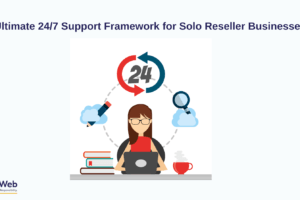Data can be valuable when learning how to use it for better search engine optimization (SEO).
You want the data to be part of your SEO plans to help you build traffic and monitor your competition’s behavior.
Also, you want to understand the things you do well and what aspects you need to improve.
Here are some to analyze your data to help you scout better SEO opportunities.
Find Your Competitors
One of the first SEO strategies for 2022 is to find your competitors. It’s hard to measure the market without understanding how your competitors move in your niche.
You can make a list to help you jot down who you feel your top competitors are in your industry.
Do some background on them to help you focus on websites that rank high in your niche. Break this data up into a few sections to give you some ideas for longevity.
You might have a few game-changers who aren’t at the head yet but know the direction of where things will go in a few years. They tend to have a fast-growing market that wields a lot of support.
Leaders have a combination of a high growth rate and a large audience. These are the people that will maintain a dominant position after the big companies start to fizzle out because they can’t adapt to any new changes.
The established players are companies with large and established audiences. They are the captains but may not change their ways too often because they’re used to this foothold on the market.
Consider Who You Should Compete Against
Some sites are just not worth competing for keywords or anything else. You might want to have a healthy medium where you go after some mid-range/intermediate-level competitors so that you won’t end up emptying your pockets.
Look at the ranking, resources, and investment to help prevent you from getting in the poor house trying to keep up.
Know Your Competitors’ Top Pages
Look at your competitors’ top pages. It’ll give you solid information on the things to get high traffic and conversion rates.
Find out their top pages and the keywords they rank for to help them excel. Get some research behind this to help you see how they’ve developed strategies to make this page stand out on search engines.
Read This: The Ultimate Guide to Keyword Research
Understand Keywords
Keyword research is still essential to performing well for organic search. Look at the keywords you rank well but might not get the same results as your competitors.
What are some strategies they use that may use to give some keyword edge over you?
You might sell a product that’s close to what your competitors promote. Do they have better keyword descriptions on their site? Maybe they have better image SEO that helps them get better results when running a search for product pictures.
These minute details could mean the difference in ranking on the first or second page.
Whether you Moz, SEMRush, Google Trends, or another keyword tool, you must do your analysis to see if you have any gaps in the mix.
Don’t just look at the top two competitors. You might have the third or fourth-ranked business with great supplementary content, but they don’t have the volume.
You might consider having better backlinks to help you build some ground for indexing your page. How do you target those keywords for your needs?
Maybe you need to create long-tail keywords that cohesively incorporate product links. Use your resources to help you find gaps to exploit an underserved market for your niche.
Find Strengths and Weaknesses
No matter the level of competition and expertise, you can always find strengths and weaknesses.
First, you want to see why your rivals might rank better than you in specific areas. It can help you be honest with yourself and sharpen your sword.
If you have a product on an eCommerce site that’s underperforming, you can always ask your employees what you need. Maybe there’s a technical issue that causes issues
Technical SEO
For example, you may have broken links, duplicate content, or terrible indexing. Find an employee that can clean up those dead links to ensure that people find the right products and services.
You don’t want your customer going to your competitor because they keep running into a 404 error or site slowdown.
Also, you have to check for duplicate content. You might have two identical pages, which causes unfavorable indexing. Search engines will see a weird discrepancy and view it as an error.
It can result in your page not ranking as high as other sites.
Site Authority
A well-known brand always has a leg up on the competition. You might be at a point where you’re still trying to establish yourself.
A big-time company might have been online for years, and they build essential links because of their name.
However, you can start finding out the places where you can maneuver. Maybe you can find some keywords that get quality search volume, but they’re not the top ones. It gives you a chance to target specific long-tail keywords.
Keep in mind to slowly build authority by ranking high for the lesser-known keywords. These calculated steps will help you create better longevity in your niche and help you see what content you need to build more traffic.
Review Your Backlinks
Quality backlinks can help you outlast your competitors. They might have the brand name in their favor, but that’s only part of the equation. The low-quality links put a site in a less authoritative situation.
It’s where you can start separating yourself from the pack. Have quality links to sites that get global attraction through high-ranking electronic newspapers and blog sites. It’s nice to have lots of sites linking to your page.
However, it’s the quality that counts the most. Additionally, don’t forget that Nofollow links can be powerful as well.
While they might not hold the same weight as Google’s algorithm, it still functions for developing brand awareness, increasing traffic, and boosting conversions.
You must all find quality internal pages for linking. Yes, it’s optimal to get the homepage. However, there could be an internal page with content relevant to some of your site pages.
It can help boost your integrity for the search engine and visitors who want to learn more about your brand.
When they see that an authoritative site links to you, they will take those words to heart to find what they need from you.
Try to find a balance between quality and quantity when building backlinks to your brand. You’ll fair better in the long term to help you excel after establishing your company.
Know Their Content Types
Content is king from the words, pictures, and videos. You must know the right thing to say to capture your audience. A site may have stellar writing lacks in other places.
You can get a competitive advantage by incorporating images that show your personality. People won’t stick around for boring 2,000-word posts from an older company.
You might be able to attract a younger audience with a funny gif and meme that’s relevant to your blog post.
People are more inclined to share these with their friends. Another thing you might be able to exploit is their lack of social media presence.
You can have social media buttons to get your post out on various social networks.
Also, you can use something like Facebook or Instagram to promote your products directly.
Some people might not want to go back to a website and need to purchase something right there. Take advantage of this to suit your younger audience.
Capitalize on video content that you can have on your site and social media pages. Maybe you can do an Instagram reel of a product using 30 seconds to get to the point.
The more comments and likes you get, the higher authority you’ll build for momentum.
Use that same reel in an Instagram story where you link to a product. It can help your traffic and sales. You might not have the budget like your competitors, but you can get creative.
Also, you can use direct feedback from your target audience to help you find out what they want from your brand. The personal relationship you build is more lucrative for your bottom line.
Analyze Each Page Individually
Sometimes it’s the small details that make the big difference. Your competitors might do the tiniest things to help them rank higher on the search engine.
For example, they may use titles with relevant keywords with H1 and H2 tags to help the search engine index their site better.
They might have a good mix of informative content and put in the ideal keywords with links.
More experienced sites even have the URL with title keywords to help them create a better link structure.
Look at every page to see how they incorporate the content, keywords, and everything else to make a well-structured page.
Search engine optimization is here to stay because it still proves necessary for long-term ranking and link building.














